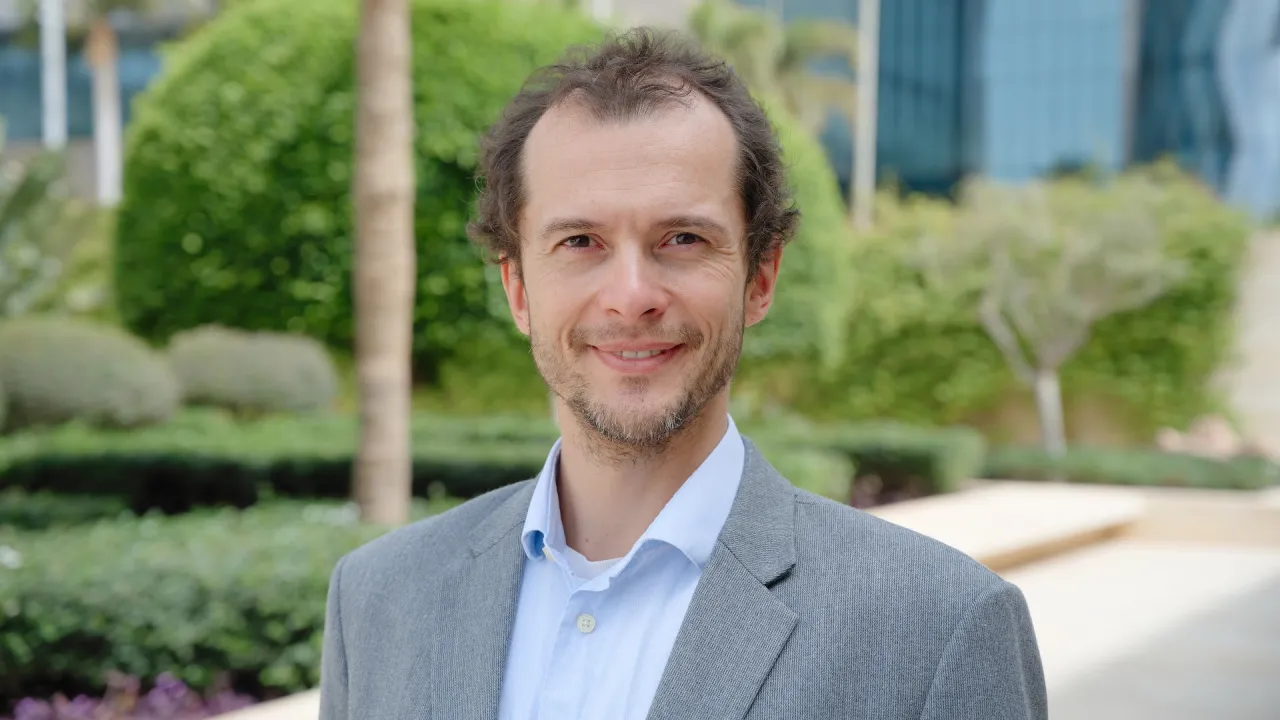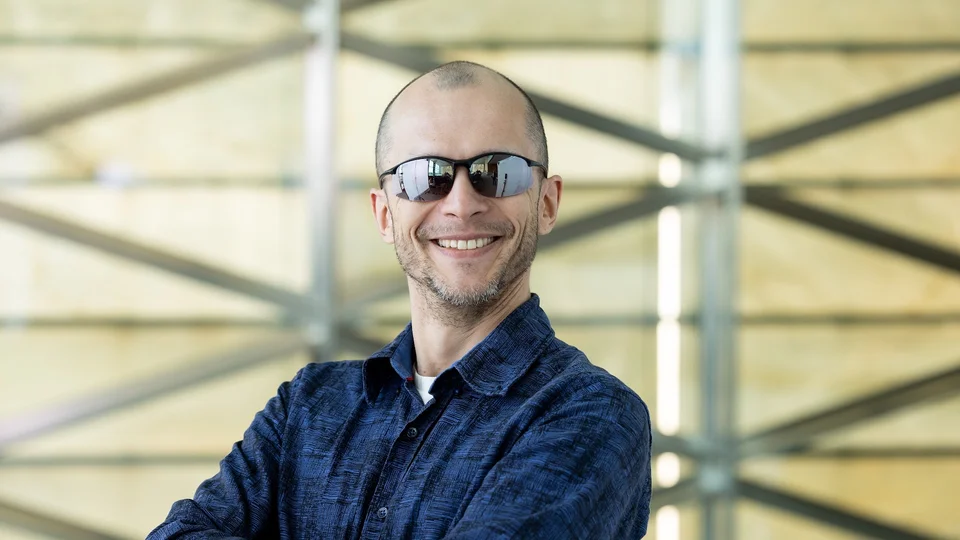
Robert Hoehndorf promoted to associate professor at KAUST
KAUST faculty member Robert Hoehndorf was recently promoted from the rank of assistant professor to associate professor. Hoehndorf’s promotion caps a year-long process where the German researcher’s scientific and scholarly output was measured and evaluated by internal and external reviews.
About
By David Murphy
KAUST faculty member Robert Hoehndorf was recently promoted from the rank of assistant professor to associate professor. Hoehndorf’s promotion caps a year-long process where the German researcher’s scientific and scholarly output was measured and evaluated by internal and external reviews.
Of his promotion, Hoehndorf noted: “Above all, I am relieved; my promotion was a year-long process involving many steps where my research and teaching were under scrutiny, so it feels good to see a positive outcome. The whole process forced me to refocus and sharpen my profile—I now know better what to focus on to achieve the impact I desire.”
Professor Hoehndorf’s core academic interests at KAUST focus on knowledge representation and symbolic approaches to artificial intelligence (AI) and how it can be utilized to gain novel biological insights. A computer scientist and logician by training, he has always been excited about formal logic.
“Logic can be applied anywhere; it is a model for human reasoning and rationality—how our thoughts should work. Moreover, it is the foundation of mathematics and computer science and has long been the main foundation of AI research. Logic inspired me to study computer science.”
Although he is now in the twenty-first year of his academic life, Hoehndorf admits to having never followed a predetermined path to become a researcher: “I always wanted to study—either computer science or, for a while, theoretical physics—but never really made concrete plans. I mainly took things as they came along.”
“As a result, in a way, it feels like I went to university and just never left: ten years as a student, five as a postdoc, and now six as a professor,” he wryly added.
Journey to KAUST
Before joining the university in the fall of 2014, the newly appointed associate professor of computer science (CS) obtained his Ph.D. degree in CS from the University of Leipzig, Germany, 2009. Post-graduation, he spent several years in the U.K. working as a research fellow and a research associate at Aberystwyth University and the University of Cambridge, respectively.
“Almost inadvertently, I ended up in bioinformatics,” he explained. “I felt that biology and bioinformatics are ideal places to apply methods from formal logic. The knowledge that biologists create through their experiments and interpretations—connecting them into broader theories, finding and resolving contradictions—really appealed to me.”
Hoehndorf’s interest in joining KAUST was piqued by the level of recognized research support and facilities found on campus. The chance to dedicate substantial time to research versus administrative duties and grant writing was a major drawing card to a new life by the Red Sea.
“Here, I can still be involved in my student's research and still have time to do my research writing code or performing computational experiments,” he emphasized. “When I came to KAUST six years ago, I had research experience but little experience on how to build or manage a research group. To begin with, our group was quite small, and I experimented a lot with its direction. Thankfully, my students didn’t get fed up with me.”
Blending biology and ontology
The research group he refers to is the Bio-Ontology Research Group (BORG) based in the KAUST Computational Bioscience Research Center. BORG, of which Hoehndorf is the principal investigator, is renowned for pioneering several methods that combine deep learning and symbolic AI. The group primarily works on ways of finding variants in genomes that cause disease.
“From a small core, BORG has grown to around 20 people, ranging from visiting undergraduate students to research scientists. The “ontology” stands for a logical theory accounting for a particular conceptualization of a domain. Ontologies are one of the primary remnants of the first “AI wave” based mainly on methods from logic. The “Bio” part is evident as we apply this to biology,” Hoehndorf explained.
“However, more importantly, as a big fan of Star Trek, I always wanted to be a part of a group that has an acronym like BORG; I never encountered this group, so my only option was to create it myself!” he dryly added.
Hoehndorf and his colleagues are also mindful to focus on research that can aid Saudi Arabia. In 2018, BORG started working with the King Abdulaziz City for Science and Technology as part of the National Program on Infectious Diseases. Collectively, they have examined the impact of the MRSA bacterium in the Kingdom.
“BORG hopes to contribute meaningfully to Saudi Arabia. We have been working with several in-Kingdom clinical partners on sequencing and analysis of diverse types of data. For example, we have been using our methods to find causative variants, and screen for risk-conveying variants, in Saudi patients suffering from Mendelian disease. And more recently, we’ve been involved in the Kingdom’s response to the COVID-19 pandemic.
An eye to the future
With one eye focused continuously on the horizon, Hoehndorf identifies his future research as a tight combination of statistical and symbolic methods in AI, with deep theoretical foundations.
“I want to use these foundations across the life sciences to represent background knowledge and identify consistency between findings: to resolve the inconsistencies and generally utilize background knowledge as constraints. As computer scientists, this will allow us to restrict learning problems to such a level that we can build significantly more accurate and complex personalized prediction models.”
When prompted on a possible career highlight, he responded: “There are many research achievements I could list, but none stick out so much that I would highlight them. I feel most proud when I see my students graduate, after having spent 3.5 years or more with them, and seeing how far they have come in their journey. That, for me, is a significant enough highlight.”
